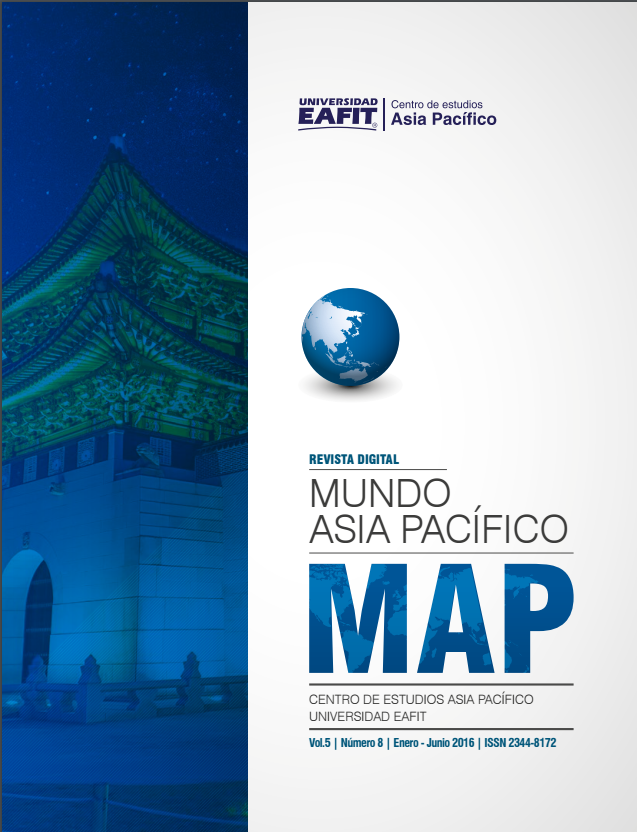Approximation to Confucianism’s influence in the Korean Corporation Culture ¿is it the key to understand the Korean “miracle”?
Main Article Content
Keywords
Confucianism, Republic of Korea, People’s Republic of China, Religion, Corporate Culture
Abstract
This article aims to present an approximation to Confucianism’s influence in the successful economic development of the Republic of Korea. First, a brief review about Confucianism, its values and characteristics is held. After that, an analysis is made regarding, how those values influence the Korean corporation culture, from its organizational structure to the relationship between employees and superiors. Lastly, it is intended to show if the impressive development of Korea is due to those set of taught values.
Downloads
References
Backman, Michael. (1999). The Business of Asian Values, en Asian Eclipse: Exposing the Dark Side of Business in Asia. N. York: J. Wiley, pp. 9-22.
Cho, Lee Jay and Chung Hoon Lee. (1995). The Government-Business Relationship in Korea: Cultural Dimensions” en Confucianism and Economic Development. Tzong Shian Yu and Joseph S. Lee eds. Taipei: Chung-Hua Institute for Economic Research, pp. 326
Hill, John S. (2007). Religion and the Shaping of East Asian Management Styles: A Conceptual Examination. Journal of Asia-Pacific Business, 8:2, pp. 59-88.
Hosftede, G y M. H. Bond. (1988). The Confucius Connection: from Cultural Roots to Economic Growth. Organization dynamics, pp 15-21.
Janelli, Roger. (1993). Making Capitalism. Stanford University Press, pp 124-155.
Janelli, Roger L. (1993). Making Capitalism: The Social and Cultural Construction of a South Korean Conglomerate. Stanford: Stanford University Press, capítulo 4 “Control from the Top”, pp. 124- 155 y capítulo 5 “Control at the Middle”, pp. 156-178.
Kee, Tan Soo. (2008). Influences of Confucianism on Korean Corporate Culture. Asian Profile, 36, pp. 1–15
Lee, Choong Y. (2012). Korean culture and its influence in business practice in South Korea. The Journal of International Management Studies,Volume 7, Number 2. October, pp 187-190.
Lee, Seungjoo and Sang-Young Rhyu. (2008). The Political Dynamics of Informal Networks in South Korea: The Case of Parachute Appointment. The Pacific Review, 21:1, pp. 45-66-344.
Lin, Tzong Biau y Lok Sang Ho. (1995). Is there a Link among Confucianism, Institutions, and Economic Performance? en Confucianism and Economic Development. Tzong Shian Yu. Taipei, Taiwan: Chung- Hua Institute for Economic Research, pp. 345-67.
López Aymes, Juan Felipe y Alejandra Salas-Porras. (2012). Korean Companies in Mexico: Business Practices and National Identity. Journal of Asia – Pacific Business, 13:4, pp 349-374.
Minkov, Michael y Vesselin Blagoev. (2013). Is there a distinct Asian management culture? Asia Pacific Business Review, 20:2, pp. 209-15
李,毓秀著《弟子规》。 (Li, Yuxiu. “Di Zi Gui” Instructions in Virtue from the Chinese Heritage). 2003. Buddhist Text Translation Society, p. 4.

